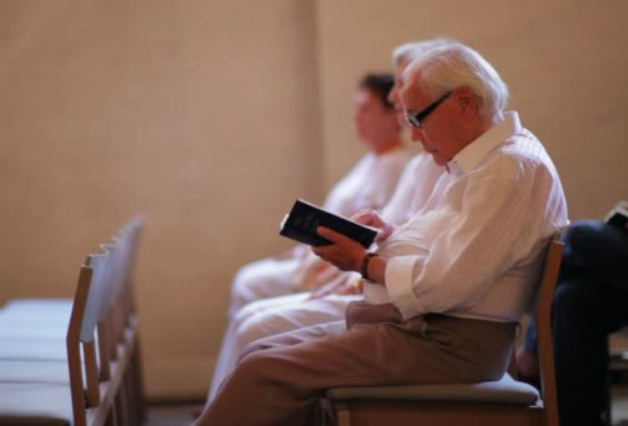
A Gospel for All Generations.
A study involving more than 100,000 participants from all 50 States by the Public Religion Research Institute reveals some interesting trends in the American religious landscape.
Among the many finds of the study is the realization that Evangelicalism is growing older. Only one in ten Catholics and Evangelical Protestants are under the age of 30, while six in ten of that group are 50 years old or older.
 This contrasts to other large religious groups. One third of Muslims, Hindus, and Buddhists in the US are under 30. The same is true of the now famous “unaffiliated” category.
This contrasts to other large religious groups. One third of Muslims, Hindus, and Buddhists in the US are under 30. The same is true of the now famous “unaffiliated” category.
The Evangelical Church in the US is aging. Significantly.
Reading about this I was thinking of John’s encouragement to “little children,” “fathers,” and “young men” (1 John 2:12-14). I was reminded of Paul’s letter to Titus about pastorally caring for older men and women, and younger men and women (Titus 2:1-6, see also 1 Tim. 5:1). Peter wrote about relationships between the younger and older in congregations (1 Pet. 5:5). In the early church there was a healthy mix of generations. Believing elderly and youth identified together in a common local church setting.
It should be concerning that we are so pervasively growing older as a movement. Obviously the answer to the problem is not more flash and fireworks. The only thing the Church has ever had to offer is the message of the Gospel. Younger generations are not hearing this message as something they need, probably for a couple of reasons.
First, I think that there is a degree of what I call “postmodern exhaustion" among youth. This is the frustration that happens when someone Googles a religious question and literally finds 6 million sites that pertain to the question. Wading through it all seems unthinkable, and people conclude the answer is just not discoverable.
Second, I think that young people sometimes hear our message so jumbled with political and sociological issues that it looks more like partisan politics than it does the Gospel. They dismiss it, not as the Gospel per se, but as a political message that does not resonate with them.
 These issues can be dealt with. Corrections can be made. The Gospel cannot change, but we can administrate it with a greater awareness of what is happening arounds us. After all, the Gospel is for all generations. We need to ask some hard questions about why they are not hearing it. We cannot just pass them by.
These issues can be dealt with. Corrections can be made. The Gospel cannot change, but we can administrate it with a greater awareness of what is happening arounds us. After all, the Gospel is for all generations. We need to ask some hard questions about why they are not hearing it. We cannot just pass them by.
The New Testament just assumes that churches have all ages in their number. It is time for today's church to ask some hard questions about why this norm is dissolving before our eyes…and like good missionaries to set our minds strategically on the task before us.

